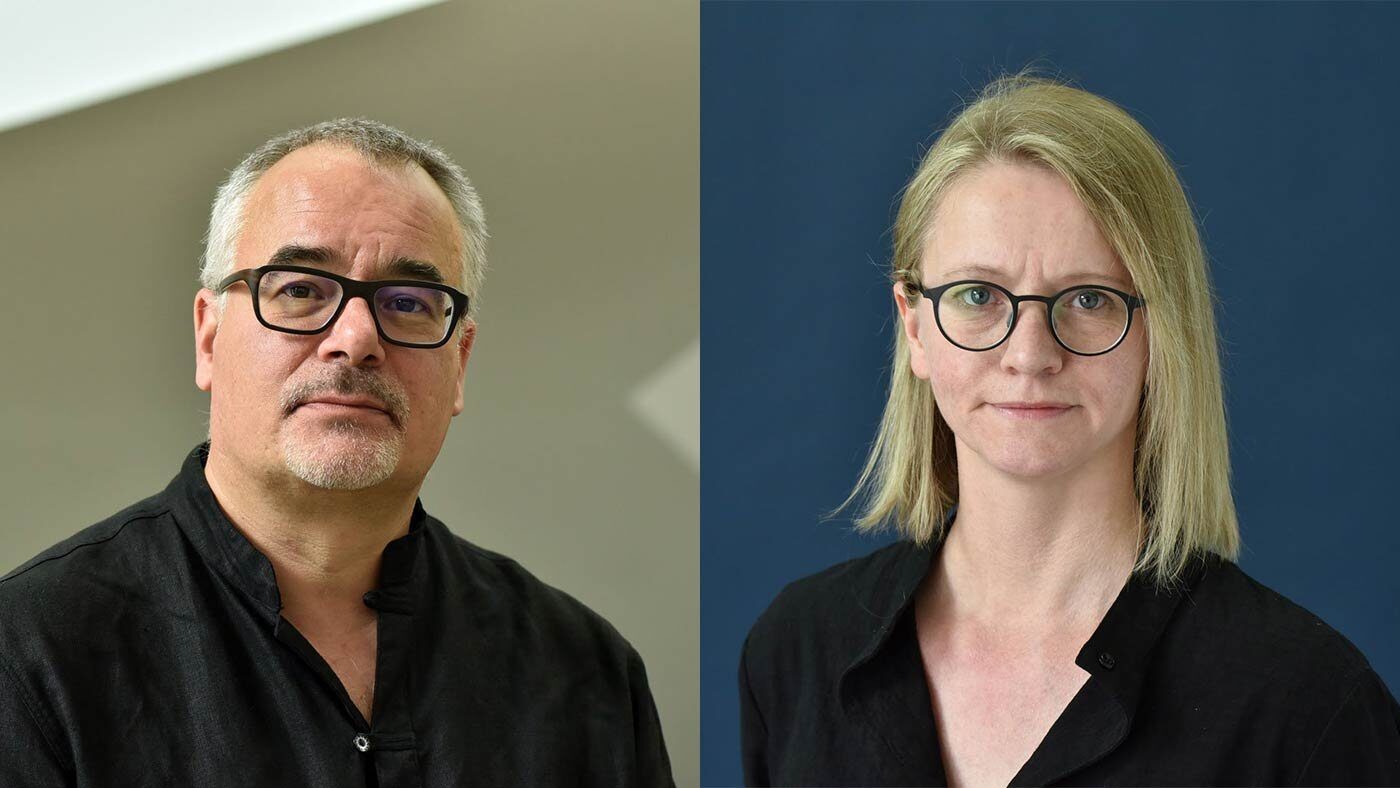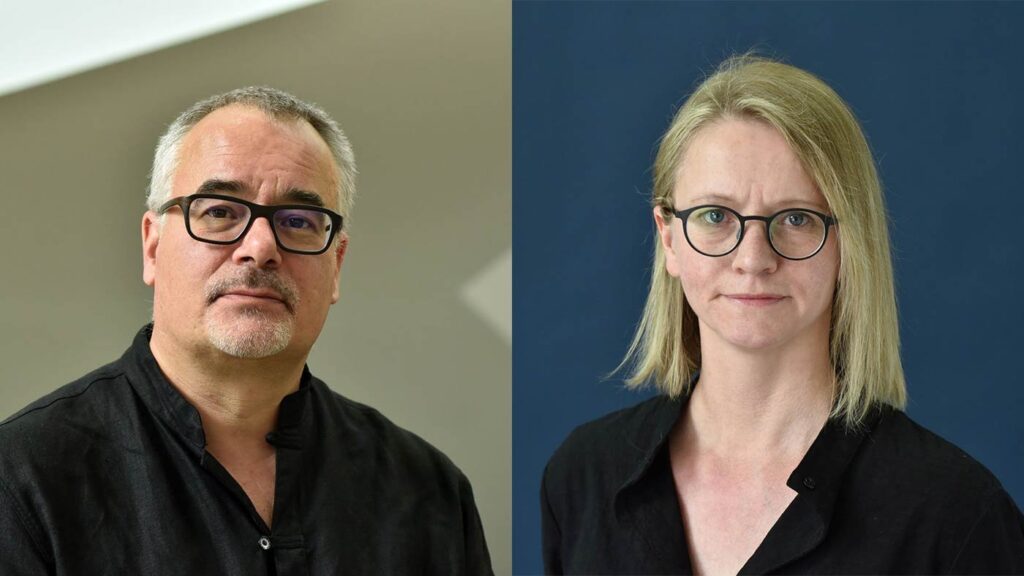Source: Taubman College

Grabner and Hansen

Grabner and Hansen
At VolumeOne, Lars Gräbner and Christina Hansen design livable, integrated urban spaces. No architectural project is too insignificant or too extraordinary for the Detroit-based studio.
“What we find most exciting about our practice is that we have the capability and interest to develop projects ranging from the very small to the extremely large,” says founder Lars Gräbner, an associate professor of practice in architecture at Taubman College. “We’ve designed everything from an announcement stele on a sidewalk to an entire university campus for 15,000 students in China.”
Since its launch in 2011, VolumeOne has acquired and been commissioned for 70 projects in the United States, Switzerland, Germany, Spain, and China. These projects include several high-profile urban mixed-use and residential developments in Detroit and Chicago, as well as cultural, educational, civic, residential, and commercial developments in such far-flung locations as Hefei, Bengbu, and Ma’anshan China; Zaragoza and Majorca, Spain; and Reutlingen and Kiel, Germany.
“We are thankful we have opportunities to work in all these different scales and to collaborate internationally as a team,” says Christina Hansen, a partner at VolumeOne and a lecturer in architecture at Taubman College. “We learn from each other and from these other cultures.”
Preparing Emerging Architects
At Taubman College, Gräbner and Hansen encourage their architecture students to explore new territory and train them to build substantiated and convincing arguments for their design proposals.
“We try to give our students professional confidence in their work so they will make a positive impact in their future job environments and have critical minds and judgement,” Hansen says. “They also must be interrogative and have no fear of the unknown.”
To help emerging architects develop the technical skills and realistic experience they will need in actual practice, Hansen and Gräbner work each fall with students in Taubman College’s Systems Studio.
Now in its sixth year, this unique design studio challenges students to develop inclusive, sustainable design solutions for housing sites across Detroit. Their proposals must be comprehensive and take into consideration everything from the building’s structure and HVAC systems to the urban and environmental impact on the surroundings.
“We are working with Detroit city planners, so these are real sites and real questions,” Gräbner says. “The students are doing ‘test runs’ and learning something that is very close to reality.”
He says the city has expressed its appreciation for the students’ work, and, in several instances, the planning director has showed their innovative design proposals to prospective developers.
“This is flattering for the students and effective because it gives them good feedback,” says Gräbner.
Read the full story here: Grabner and Hansen.


